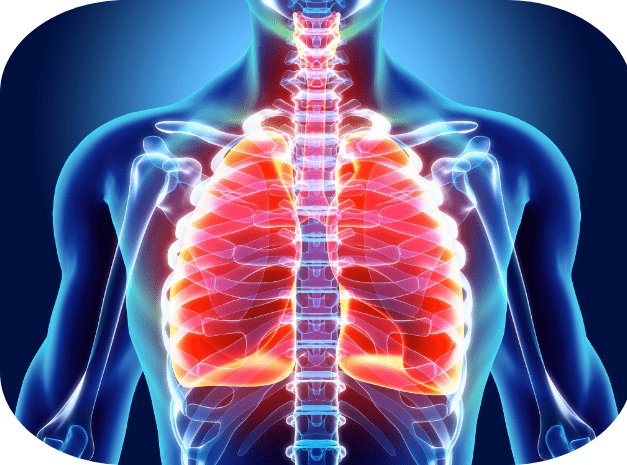Cannabis is getting a lot of attention and one of the topics is the immune system. Cannabis use and cannabis exposure affect immune function and health, immune cell activity, susceptibility to infection and inflammation. Researchers are looking at how cannabis modifies immune responses in chronic diseases like HIV and Hepatitis C and how it impacts pulmonary immune function and lung disease. We need to understand these effects to develop guidelines for cannabis use especially for respiratory and infectious diseases.
Cannabis and Immune Function
Cannabis is used by over 188 million people worldwide. While we hear about its medicinal properties, the effects of cannabis on immune function especially in individuals recovering from substance use disorders (SUDs) is not well explored. For those with compromised immune system, cannabis use is a big risk. Cannabinoid receptors, CB1 and CB2 play a big role in the immune system by mediating the effects of cannabinoids on immune response and inflammation.
For individuals with autoimmune diseases, where the immune system mistakenly attacks healthy tissue, cannabis use can exacerbate symptoms such as pain and inflammation.
The immune system is the body’s defense against infections, viruses and other health threats. When functioning properly it identifies and eliminates the harmful invaders. But cannabis use can disrupt this balance and weaken the body’s ability to fight off infections and slow down recovery for individuals with SUDs.
For a further breakdown on how to get THC out of your system, refer to this detailed guide.

How Cannabis Affects Immune Function
Cannabis affects the immune system through its interaction with immune cells like T-cells, B-cells and monocytes – all part of the immune response. Cannabis is an immune modulator which can disrupt normal immune responses and produce anti-inflammatory effects. Cannabis’s anti-inflammatory properties can be particularly beneficial in conditions characterized by chronic inflammation, such as cancer and HIV.
- Stat: Cannabis use reduces T-cell proliferation by 50% – a key part of the immune system’s response to infections.
- Stat: 38 million people living with HIV and 170 million with hepatitis C globally are also cannabis users which complicates their immune response to these viral infections.
Modulation of Pulmonary Immune Function by Inhaled Cannabis Products
The lungs, aside from gas exchange, is the first line of defense against inhaled pathogens and toxicants. Cells lining the airways, including epithelial cells and alveolar macrophages, play a big role in immune defense. But exposure to environmental toxicants including cannabis smoke can alter the function of immune cells in the lungs. Cannabis smoke contains many respiratory toxicants that can damage the lungs and weaken pulmonary immunity.
A study published in Respiratory Research (2023) showed how cannabis can shape the immune response in the lungs. The study noted that while cannabinoids may have medicinal properties, inhaled cannabis products, especially chronic cannabis smoke, can impede pulmonary immune responses and lead to chronic lung disease. Chronic obstructive pulmonary disease (COPD) is another concern, as the effects of cannabis smoke on lung function are still not fully understood.
- Stat: Chronic cannabis smokers have been found to have increased number of neutrophils and macrophages in their lungs which impairs lung immune function.
Studies Showing Negative Effects of Cannabis on T Cells
Multiple studies show that cannabis use impairs immune function. One of the findings is the reduction of IFN-γ (interferon-gamma) production which is crucial for defending against viral infections. This suppression makes the body more susceptible to illnesses especially viral infections like HIV, hepatitis C and potentially monkeypox. THC and AEA can also suppress T cell function, T cell proliferation and activation which has implications for cancer treatment and immunotherapies.
- Stat: Cannabis users are 5 times more likely to have impaired immune responses than non-users.
How Smoking Cannabis Weaken the Body’s Response to Infections
Cannabis use, particularly smoking marijuana, can affect how the body responds to infections especially viral ones. For people with autoimmune diseases where the immune system attacks healthy tissue, cannabis can worsen symptoms like pain and inflammation. This is seen in orthopoxvirus infections like monkeypox. In one case study, a young patient with severe cowpox infection was a cannabis user which impaired their immune response and worsened the condition.
- Stat: 6% of severe monkeypox patients need hospitalization, higher in those with compromised immune system.
Cannabis Use and Recovery from SUDs
For individuals in recovery from SUDs, cannabis use adds more problems. Recovery requires the body to heal from the damage caused by previous substance abuse. While cannabinoids like CBD and THC have anti-inflammatory properties that can help certain conditions, their effect on the immune system can slow down or derail the healing process.


Complications in Recovery due to Compromised Immunity
Patients in recovery from SUDs have impaired immune function due to years of drug use, poor nutrition and neglect of self-care. Chronic cannabis smoking can further impair immune function by affecting the lungs and reducing the recruitment of immune cells like macrophages. Adding cannabis to this equation can decrease the body’s ability to fight off infections and recovery.
- Stat: Cannabis smokers are 25% more likely to get respiratory infections like pneumonia which can be deadly during early recovery.
Health Risks for SUD Patients Who Smoke Cannabis
One of the biggest risks for SUD patients who smoke cannabis is the increased risk of respiratory infections. Cannabis smoke just like tobacco smoke can irritate the lungs and weaken the body’s defenses making it harder to fight off infections like bronchitis or pneumonia.
- Stat: Chronic cannabis users are 3.2 times more likely to develop chronic bronchitis which can complicate recovery.
Chemsex and Immune Health
Chemsex, the practice of using drugs like marijuana and alcohol to enhance sexual experiences adds another layer of complexity. Chemsex has been linked to risky sexual behaviors like unprotected sex which increases the risk of STIs. For those with already compromised immune system due to cannabis use, chemsex can further put their health at risk.
- Stat: 40% of men who have sex with men (MSM) report heavy cannabis use during sex which increases their risk of HIV and other STIs.
What Treatment Centers Should Know
Addiction treatment centers have a big role to play in educating patients about the risks of cannabis use especially on immune health. Including immune function in recovery programs can help patients make informed decisions about their substance use and overall health.
Immune Health in Recovery Programs
Educating patients how cannabis affect the immune system is a crucial step in helping them protect themselves during recovery. Treatment centers should include this in their recovery programs and emphasize the importance of having a healthy immune system.
- Stat: Patients who receive immune health education during recovery have 15% higher success rate in staying sober.
Immune Health Support
In addition to education, treatment centers should provide comprehensive immune health support. This includes immune-boosting practices like proper nutrition, regular exercise and medical interventions when necessary.
Key Point: Comprehensive care with immune support can improve recovery outcomes for patients who have used cannabis.

Start Your Healthier Journey with Asana Recovery
At Asana Recovery we know what it takes to overcome addiction and protect your health during recovery. Our treatment programs include personalized care, immune health education and support for all aspects of your recovery. Whether you’re just starting out or need ongoing support, Asana Recovery is here for you.
Contact us today to learn more about our whole person approach to addiction recovery and how we can help you achieve long term wellness. Let’s build a healthier tomorrow.
Bottom Line
Cannabis use can have big and often overlooked effects on the immune system especially for those recovering from substance use disorders. By weakening immune responses cannabis introduces new risks that can derail recovery and lead to serious health complications. Treatment centers should take these risks seriously and include immune health education and support in their recovery programs so patients can achieve long term sobriety and overall health.
Sources:
- Mayo Clinic Staff. (n.d.). Medical marijuana. Mayo Clinic. https://www.mayoclinic.org/healthy-lifestyle/consumer-health/in-depth/medical-marijuana/art-20137855
- National Center for Biotechnology Information. (2022). Cannabinoids and the immune system. National Library of Medicine. https://www.ncbi.nlm.nih.gov/pmc/articles/PMC9887129/
- Preteroti, M., Wilson, E. T., Eidelman, D. H., & Baglole, C. J. (2023). Modulation of pulmonary immune function by inhaled cannabis products and consequences for lung disease. Respiratory Research, 24(95). https://doi.org/10.1186/s12931-023-02399-1
- PubMed. (2005). Cannabinoid receptors CB1 and CB2: Effects on immune function. U.S. National Library of Medicine. https://pubmed.ncbi.nlm.nih.gov/16402900/#:~:text=CB1%20and%20CB2%20cannabinoid%20receptors,bone%20growth%2C%20and%20immune%20function.
- WHO. (n.d.). Monkeypox: Questions and answers. World Health Organization. https://www.who.int/news-room/questions-and-answers/item/monkeypox





